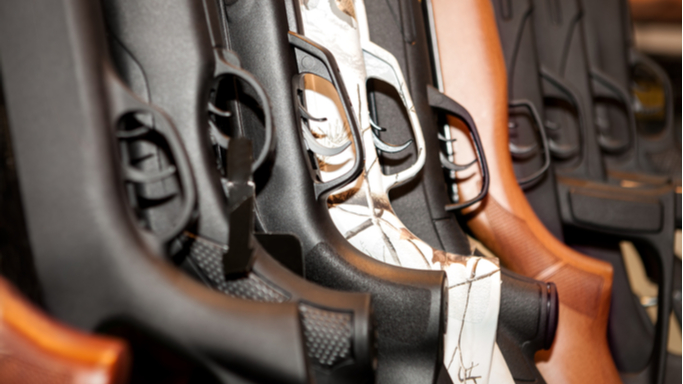Coronavirus is already changing people’s habits. Could it also change the way Americans think about guns?
This week, President Trump warned that a 20 percent unemployment rate could happen (he later backed off that 20 percent figure but rising unemployment will likely happen). This makes sense considering the closures of restaurants, bars, gyms, event venues, and the cutting of hours at many retail shops. Essential products are also becoming scarce and might not be restocked as quickly as usual.
Does this mean we’ll begin to see an increase in crime?
Today, crime rates are at a historic low. But Americans should know that high unemployment rates usually lead to an uptick in crime and that the scarcity of products only adds to the problem.
Americans should also be aware of a new, hopefully temporary, reality: the police might not be there to help. In Philadelphia this week, the police department announced that the police would no longer arrest people for so-called “non-violent crimes.” Those include: narcotics offenses, theft from persons, theft from retail stores, theft from cars, burglary, vandalism, and stealing cars.
Philadelphia Police Commissioner Danielle Outlaw later said that those accused of these “nonviolent offenses,” who would normally be arrested and processed would now only be temporarily detained so that police could get their identity and home address so that they can be “arrested at a later date.” Because I’m sure criminals will stay put and just wait for their looming arrest.
Clearly, this policy change is well meaning. It is meant to ensure social distancing for police officers during a public-health crisis and safe in the case of any riots that might occur at a time when people are likely to be under higher levels of stress. Yet, it’s also reasonable to worry that this policy may result in criminals feeling like they have a free pass to commit crimes during the Coronavirus response time frame.
In fact, a 2012 study on the link between unemployment and crime found, “…the strongest and most consistent patterns of relationships for both the crime opportunity and crime motivation effects are found for three property crimes: burglary, larceny, and motor vehicle theft…”—the very crimes for which some police departments won’t arrest during the Coronavirus time frame.
Additionally, New York City, Mayor Bill de Blasio announced this week that he may free prison inmates over fears of Coronavirus. The same is happening in Los Angeles and in some cities in Ohio. One can certainly see the humanitarian reasons for taking such action, but it isn’t hard to see that this could also lead to an uptick in crime.
As schools continue to close and parents now find themselves at home with their kids, will parents feel the need to arm themselves in the event that there’s an increase in break-ins, robberies, and car thefts? Maybe so, especially if the police aren’t going to be there to help.
It’s clear that this virus will change things in America and that it will be some time before Americans resume normal habits. Perhaps one lasting change will be that people will have a greater appreciation for gun rights and gun ownership and will gain a clearer understanding of why it’s important to have the means of defending oneself when the police aren’t around.
So far, there’s been no need to worry. Crime has not spiked and the news is filled with heartwarming stories of businesses and individuals all doing what they can to help their communities deal with this public health crisis. Yet, this could change, especially if infections rise and stores and other businesses begin to close.
Arming yourself is a choice—a choice every American should be allowed to make, especially during uncertain, potentially dangerous times. And while it would certainly be a positive outcome if this global virus made people understands the importance of the right to bear arms, it shouldn’t take a pandemic, wild spikes in unemployment, and a possible increase in crime to make people respect the Second Amendment.
Follow Julie on Twitter at @JGunlock

